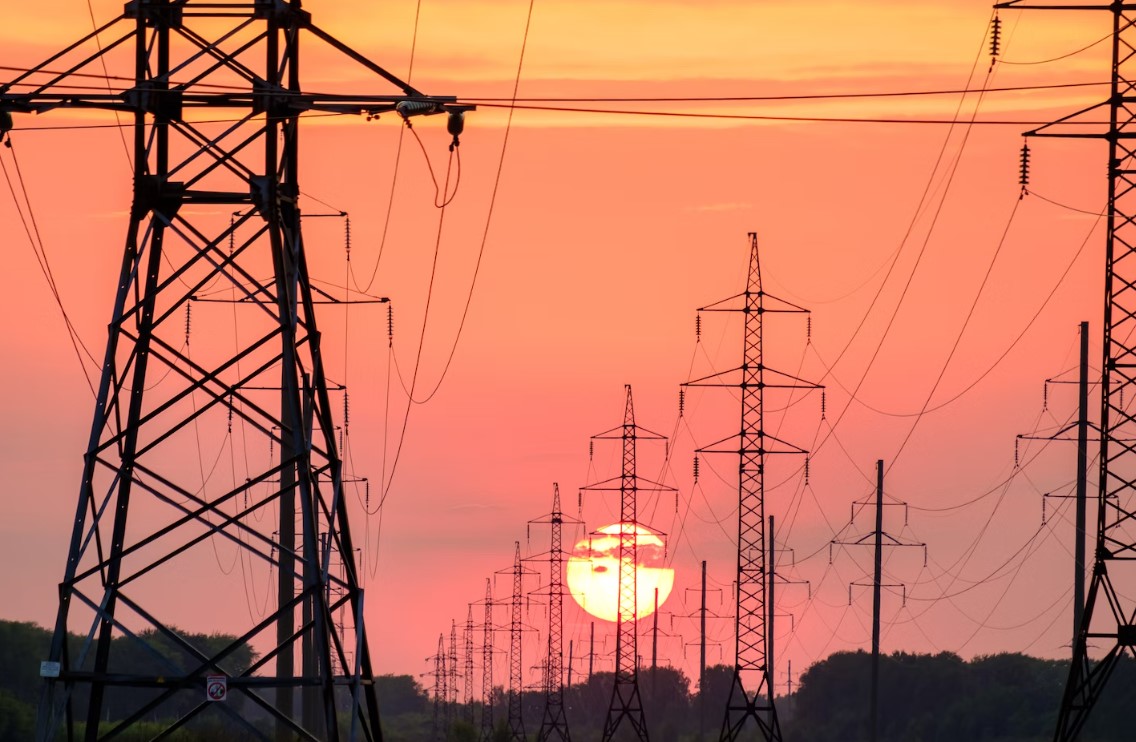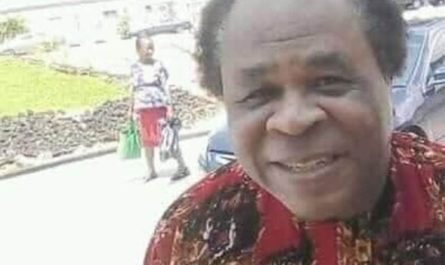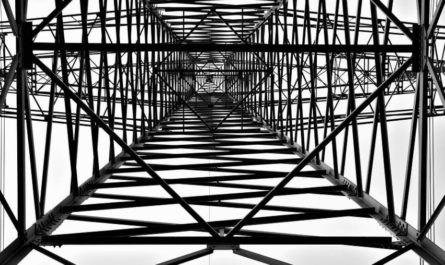Erratic or sometimes even non-existent power supply has been so prevalent in Nigeria that ordinary citizens have conditioned themselves to see a 247 power supply situation as one of utmost luxury. The consequences of inadequate power supply have crippled the country’s economic sector for half a century.
Approximately half of Nigeria’s 200 million populace have zero electricity. The other half who presumably have power supply are under-supplied with available power rationed around them.
Is it even possible to have a 247 power supply round-the-clock in Nigeria? The simple answer is yes. It is a reality in countries all over the world, even closer home on the African continent like Uganda, Egypt, and even neighbouring countries like Ghana have achieved or are close to achieving it.
It begs the question if 247 light is achievable, why haven’t we achieved it as a nation? And the simple answer to this is understanding the problems or challenges c power generation and distribution in Nigeria.
Let us examine a couple of them and look at the suitable interventions that might offer the solution and make the 247 power supply a reality in Nigeria.
Curbing Undue Government/Political Interference & Negligence In Managing Power Companies
Political interference over the governance and administration of the Power Holding Company of Nigeria (PHED) (formerly known as the National Electric Power Authority (NEPA)) stifles the operations of the company and manifests into production under capacity.
The appointment of officers and executives of the power company over the years has not been transparent because of nepotism and the engagement of unqualified people to fill positions requiring specialist knowledge and expertise.
Appointing undeserving people into sensitive leadership positions can be harmful and negatively impacts employee productivity. It demotivates and reduces staff morale. Job satisfaction declines, staff exits increase and employee retention dwindles.
In the long term, the company’s performance reflects the negative consequence of undeserving leadership.
Placing deserving people in governance at PHCN will act as a check to curb corrupt practices stemming from poor remuneration, non-payment of gratuities and pension, and job insecurity plaguing the organization. These will stabilize and increase staff productivity and overall productivity that will help the nation train its 247 power supply goals.
Implementing Long Overdue Decentralisation Of The Power Supply
Around the world, many countries that have achieved their goal of supplying round-the-clock electric power, decentralized their power supply chain and grid to ensure they achieved their goal.
Decentralizing local energy sources is a proven method of addressing energy deficits and boosting supply not only at federal and state levels but even in the most rural communities.
In Nigeria, all the available facilities utilized by a total of 6 gencos, 11 discos, and 23 generation plants are connected to a centralized network. To put a better perspective, these facilities are serving 36 states and are spread over six geographic regions. There is no way this arrangement can provide the nation with its much-needed round-the-clock power supply because it stunts the development of the nation’s main, micro, and even mini electricity grid.
The Nigerian government has shown no interest in decentralizing the country’s electrical infrastructure, even though it is too big to be controlled by a single organization. Electricity distribution needs to be decentralized to different states and regions to reach a larger percentage of the populace.
Inadequate Methodologies To Determine Electric Tariffs
A large number of electricity consumers in Nigeria are dissatisfied with the tariffs imposed on them by the Power Holding Company of Nigeria. The tariffs are largely considered to be excessive and somewhat punitive.
Top on the list of complaints from Nigerian electricity consumers is overbilling. This is a recurrent issue, particularly for electricity consumers who do not use prepaid meters. Flat rates tariffs create inequality and dissatisfaction because consumers utilizing less electricity cross subsidize those utilizing larger quantities of electricity.
Nigerian electricity consumers also pay the same tariff regardless of what time of the day it is. Countries trying to close-up income inequality in their economies, pay particular attention to electricity tariffs and offer lower-priced options at off-peak hours like nighttime and higher tariffs during the day.
The African Development Bank itself released a report in 2018 which showed that 40% of the countries in the continent use tariff methodologies that do not include key attributes such as automatic tariff adjustment and tariff indexation mechanisms and schedule for major tariff reviews.
In Nigeria, fairness in tariffs needs to be equitable for the consumer and the Power Holding Company to prevent loss of revenue and increase consumer satisfaction. Fairer tariffs would also promote the stakeholder interest of Nigerian consumers.
Indebtedness Of Consumers
Agreed, every country in the world has unique challenges. Nigeria has very particular issues concerning power.
The generating firms face challenges collecting their debts for power supplied to discos. Discos also face huge challenges collecting their debts from consumers including the Nigerian government.
A lot of people who use power in Nigeria, often avoid paying their bills. The amount of unpaid federal and state government debts in Nigeria for electricity was approximately N100 billion in a 2021 report. All these reduce overall expected revenue and stunt the growth and development of electricity in Nigeria.
Leadership must be set by example. The Nigerian government must make a concerted effort to pay up all the steps to the Power Holding Company in full. The country already has legislation in place to tackle debt avoidance as it relates to power companies. We must start implementing the law to its fullest.
Indebtedness might never be erased in total however, the debt ratio can be significantly reduced, and future evasion curbed.
Expanding The Renewable Energy Space
For a very long time, Nigeria has focused heavily on its hydropower and fossil fuel electric plants and ignored the development of alternative energy sources. This is a huge mistake on the part of the government as well as the citizens.
The most popular alternative power supply embraced by Nigerians and her government are fuel and diesel generators which pollute the air with toxic substances, and noise, and pose a risk of fire outbreaks.
Being close to the equator puts Nigeria at a great advantage to develop solar plants and create electricity for half of the country’s population in total darkness. The solar energy market in Nigeria is in its early days. It is largely untapped and propelled by private individuals and SMEs with personal financing.
Incentives from the government of Nigeria will be necessary to enhance partnerships with renewable energy companies and accelerate the development of the unarguable solar energy potential of the country.
Long-term, flexible, single-digit interest rate financing options for solar energy projects are great incentives for increasing solar energy availability. Subsidies and special shipping duties will also help people all companies importing solar equipment whether for residential or industrial purposes.
Solar energy development will tremendously accelerate power supply into rural areas of the country and enhance micro electricity grid development.
Infrastructural Dilapidation, Vandalism, And Theft
Nigeria produces just one-third of its 12,500 megawatt capacity of electricity. An issue that is less discussed is that even if Nigeria can produce at full capacity it will be unable to distribute the power generated because of its obsolete infrastructure.
Most of the infrastructure and the equipment being used country-wide by the Power Holding Company of Nigeria were purchased decades ago so are inadequate to handle current-day population needs from the supply and distribution side. The technology is outdated coupled with the fact that they were poorly maintained.
Where electricity production and distribution equipment is in a good state of repair, frequent vandalism, and theft of copper cables, metal parts, panels, transformers, and even official vehicles continue to pose a threat to optimal electricity delivery.
Power sector development is highly capital-intensive and always needs intervention from the government. The government infrastructural development focus should not only be channeled towards increasing power supply but also in developing facilities and acquiring equipment that complies with current technological needs and can even be upgraded to comply with future technological standards.
Security measures to guard existing and newly acquired infrastructure should be tightened Communities need to be sensitized as being stakeholders equally responsible for guarding electrical equipment in their vicinity. Stiffer penalties would need to be imposed on thieves, vandals, and purchasers of stolen equipment.
Other Issues
There are a host of other issues which need to be addressed if Nigeria is determined to provide its citizens with a round-the-clock electric power supply. A few of them worthy of mention are:
- Curtailing corruption in the supply and distribution ecosystem of electricity companies.
- Planning and developing in advance, storage facilities that will not only cover any eventual supply shortages but also aid the export of power to yield revenue for the country.
- Repetitive and upgrading current frameworks surrounding the establishment of power companies to attract foreign direct investment and Improve the bankability of electrical power projects in Nigeria.
- Demanding accountability and compliance frequently from all partners and stakeholders from the top of the helm to the bottom of the ladder within the electricity ecosystem
These additional issues and many more have to be tackled as part of the strategy to increase the power supply to an optimal standard in Nigeria.
Conclusion
In addition to generally reducing the quality of life in Nigeria, poor power supply restricts opportunities for the general public, increases unemployment, raises business operating costs, compromises the quality of emergency, medical, and educational services plus endangers lives when toxic alternative fuel sources are used.
No nation in the world has grown economically without also expanding access to clean, affordable, renewable energy for the whole populace.
A steady electrical power supply in Nigeria is an achievable dream. With the right leadership opening doors for private sector participation and a population with increased stakeholder interest, the nation can one day make epileptic power supply a thing of the past forever.




